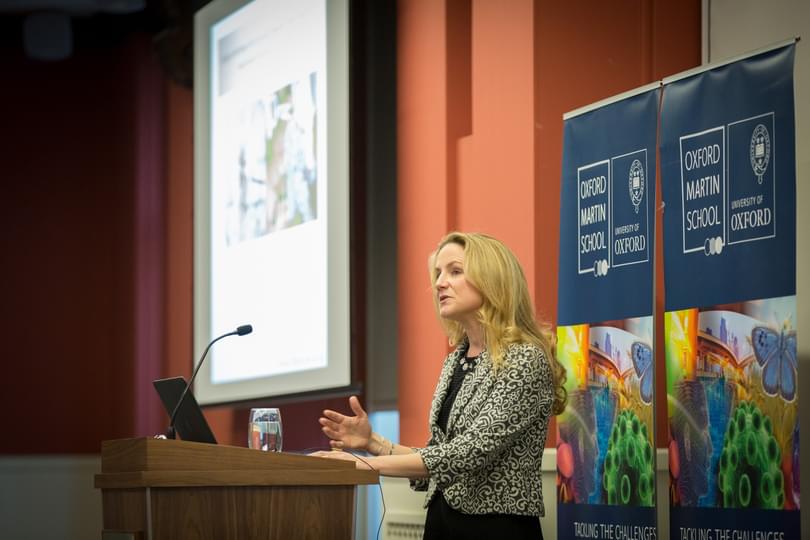
Rates of evolution are 10,000 times too slow to keep up with rates of climate change, warned Dr Nathalie Seddon, Director of the Oxford Martin School's Biodiversity Institute, during a seminar entitled 'Biodiversity and climate change: what happens when we turn up the heat on nature?'.
The seminar was part of the ongoing Oxford Martin School series Creating a climate for change: what’s at stake in global climate negotiations.
Dr Seddon began by detailing the widespread tangible effects climate change has already had on our ecosystem, noting that currently between 10 and 690 species are going extinct every week, before going on to explain predicted forecasts for the rest of the century, namely that 26% of mammals, 30% of birds and 40% of amphibians could become extinct.
She used the latter part of her talk to focus on solutions to the challenges to biodiversity posed by climate change, primarily through efforts to preserve tropical forests, which, despite spanning just 2% of the earth's surface, are responsible for absorbing 1.4 billion metric tonnes of carbon dioxide from the atmosphere a year - more than half the total global absorption.
Dr Seddon concluded with a set of key action points for the future, including lobbying for transparency in materials supply chains, linking policy on agriculture, forestry and indigenous people to intergrate approaches, and changing behaviour in regard to consumption of meat and other luxuries.
- Watch Dr Nathalie Seddon's seminar, ‘Biodiversity and climate change: what happens when we turn up the heat on nature?’
- Catch up with other seminars from our 'Creating a climate for change' series